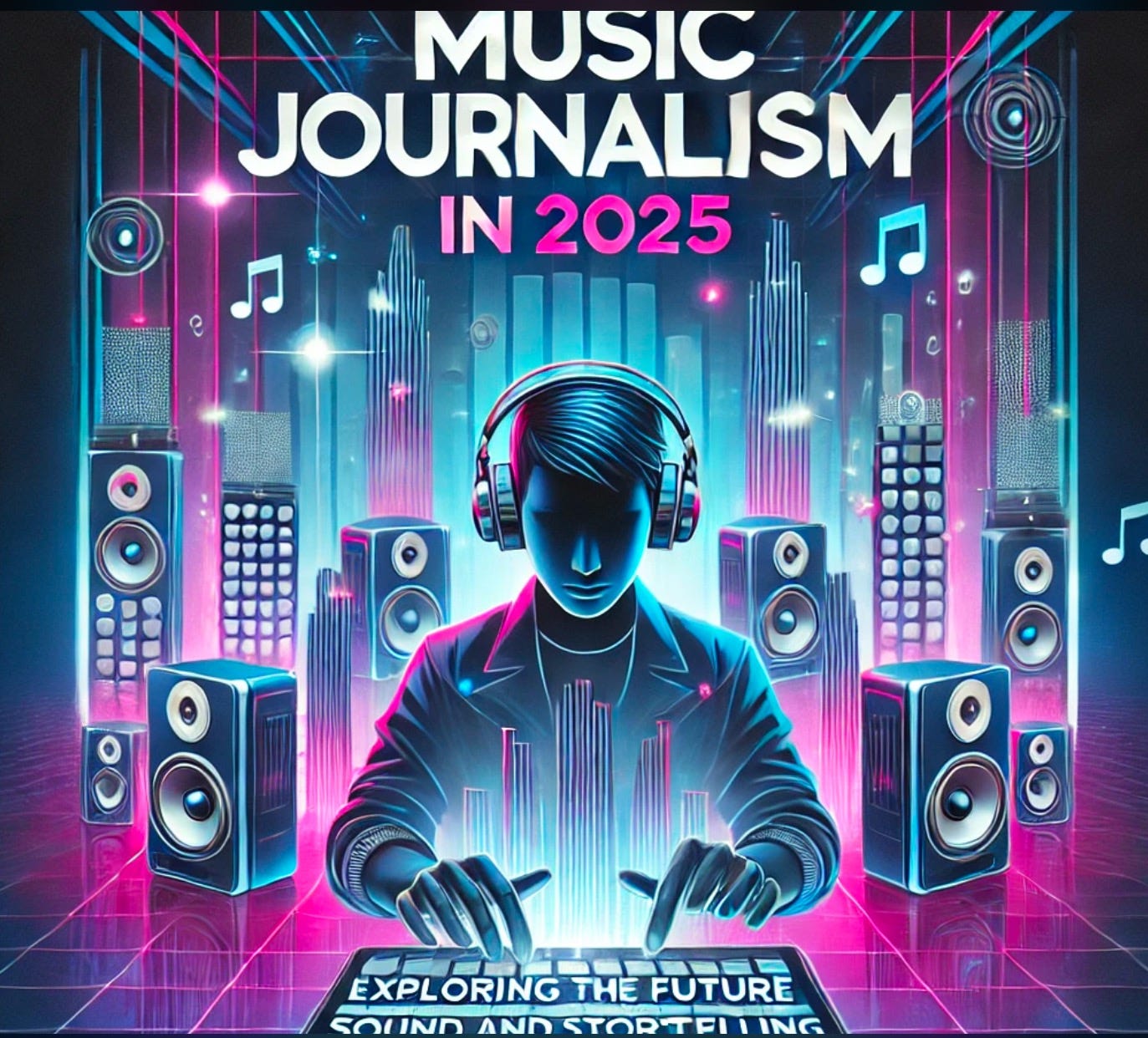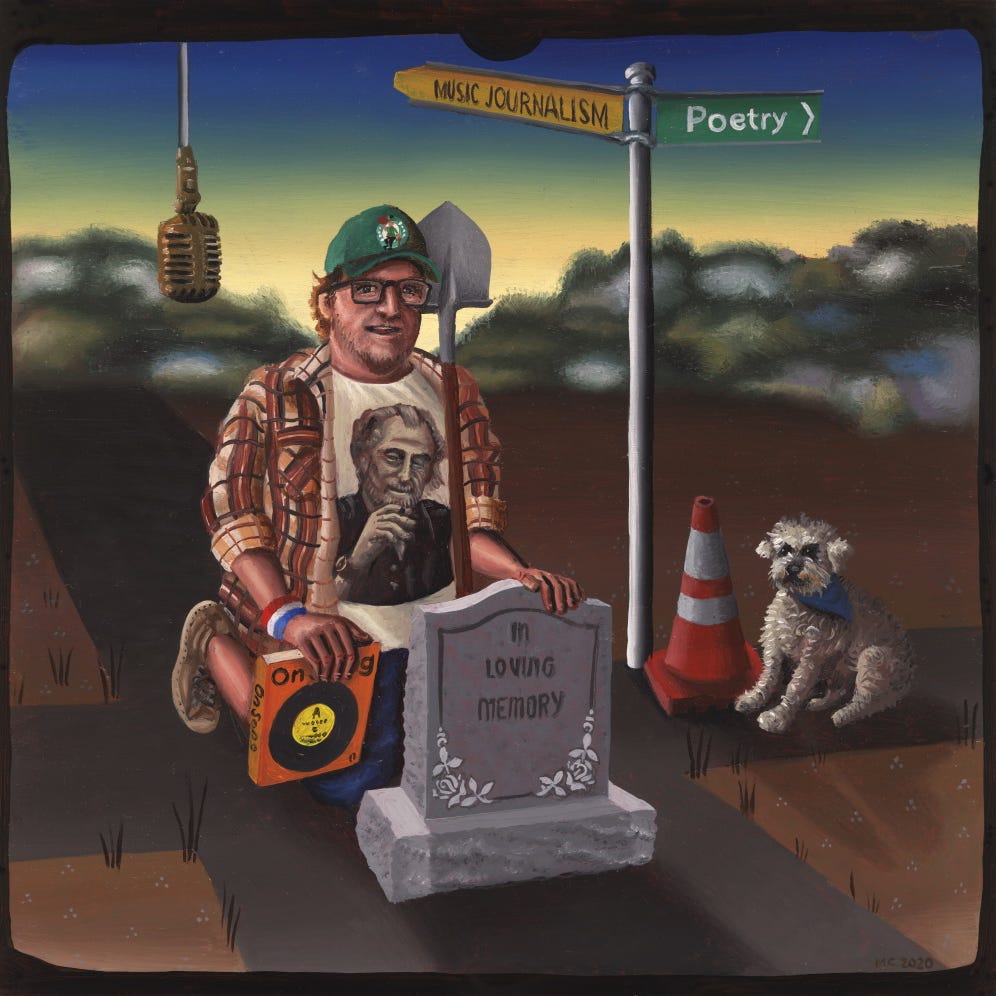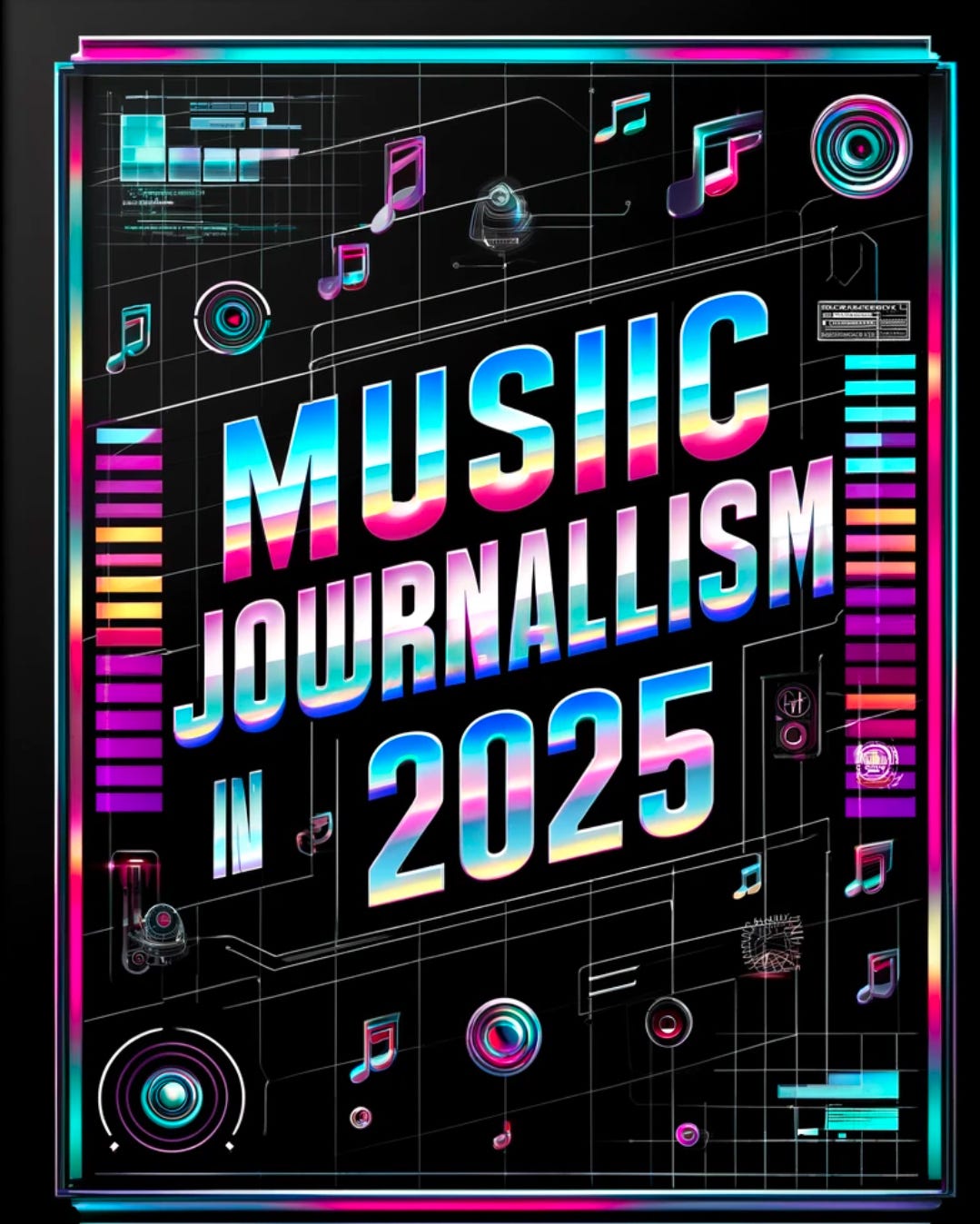What Will Music Journalism Look Like in 2025?
Friday is about music. Here’s the first Friday newsletter for 2025, so let’s take the temperature, or do a bit of forecasting, etc…
There’s the question. I’m not sure I even care to try to answer it with any alacrity. I diagnosed it dead five years ago, and I was a couple of years late. Easily. But, as a fan of zombie films — and horror in general — I’m quite open to these hopes and prayers suggesting or calling for music journalism’s alleged comeback.
But I’m not looking for any lasting gig. I’ve got my space here, and that’ll be fine. I do not want to write about Beyoncé’s new album. The world doesn’t need my take on that. And I was relieved to not have to offer one. I think the music journalism people want isn’t ‘reviews’ of Dua Lipa and Olivia Rodrigo and Taylor and Lana and Queen B and Harry Styles and whoever else. Those artists do not need to be reviewed. Taylor getting a good or bad review means nothing, beyond a bunch of Swifties having a target — for extra love or hate.
Also — more importantly, and we must remember, There Is No Gig! No one needs to pay a music writer in New Zealand to cover any perceived ‘beat’ because there is no beat, and there is no advertising to pay for it, and there is no chance that the reviews can influence sales, and no one needs to pay for music. But that’s all talk from 2016-2020.
After Covid, and people home-schooling themselves, knitting loaves of sourdough, and rediscovering their old records and CDs, there was the realisation that whilst music was ‘free’, they didn’t always know where to start. And people also remembered they quite liked to read. Not all of them. But some of them. Great people like you!
Spotify cops a lot of grief — and rightly so. With its AI music, and dodgy business practices, its cosy relationship with the record companies because the record companies still want to exist. I still use Spotify, and someone gave me a bit of grief on this forum recently for sharing a playlist I made. I have no intention of taking a stand against Spotify. But I totally understand why anyone else would. My soul was corrupted years ago with discount CDs as a retailer, free CDs as a reviewer, and books and DVDs galore too. But I also bought and paid for loads of music and books back then too. And still do now. Spotify isn’t interested in the hardcore listener, it is interested in trapping the casual fan, in much the same way that the commercial FM stations were more interested in selling jeans and movie tickets than they ever cared about music, or breaking new artists, or even playing music at the right speed…
Much like the “Saving $1m by removing one olive from every meal on the airline” story, FM radio stations worked out they could fit in a few more adds if they sped up songs just enough so that people wouldn’t catch on or think it was the Alvin & The Chipmunks remix.
Anyway, Spotify exists for people who don’t really love music — they just figure they need a soundtrack to their life. If it catches a few of the real true fans along the way, well, it’s a bit like driftnet fishing.
But there’s no denying that Spotify killed music journalism. It was dying anyway. And Spotify’s mass reach, its ‘free’ platform, and vast catalogue was enough to catch most if not all. No one needs to know whether the album is good or not if they’re not throwing down money for it.
And, well, boring, we’ve covered this all before. I know it already. You know it already. But it’s the necessary background for any future conversations about “Music Journalism”.
So, if the future is live gigs, and selling merch, then maybe part of the future is gig reviewing? I certainly think so. And gave that a hell of a nudge in 2024, mostly with my own money, though sometimes — and to great thanks — with help from the kindness of some venues, publicists, and promoters.
My Best of 2024 — On Substack
In my “Best of 2024” wrap, above, I shared most of my gig reviews. I enjoyed writing them, even if I didn’t love every gig. But most of the gigs I saw were great, or close enough to great, and worth my time.
There’s a problem with gig reviewing that has always been there — the gig that you rave about has been and gone and most likely isn’t coming back. But gig reviewing is only about promotion if you’re the promoter. It’s actually classic old-school public record journalism. An archive of who came to town, and when, and how it went. It’s also promotion in the long-game sense. Certain promoters have a better knack than others for connecting to anything Zeitgeist/ish. And well written reviews promote the scene, and reassure people of the taste of certain venues and promoters, and bands of course.
I’ll certainly keep going to gigs if and when and where I can in 2025 — and I will write about them as often as I’m able, largely because old habits die hard.
And I will try and review a few more albums here and there I guess, but I’m less concerned with that. I’ll certainly only be reviewing things I don’t think many other people will bother with — because otherwise what’s the point? No one really needs to know if the surprise Kendrick Lamar album is ‘good’ within 12 hours of it ‘dropping’. They can find that out for themselves. What they might not know is that Micky Dolenz, the last Monkee standing, and turning 80 this year, is still making interesting music, via a series of covers.
They might not know about Australian band The Necks. Or the latest project by the still prolific Brian Eno. Or that the guitarist from Pink Floyd, last year made the best album of his career, pretty much. Those are the sorts of things I can cover, and have interest covering. So that is what I’ll do.
But what else can I do here on a Friday? Well, I’ll probably keep going with random essays and lists, and comparisons between artists and albums — like when I wrote about Frankie Goes to Hollywood and Deep Purple, unlikely bedfellows that just happened to both make great albums in the same year. Beyond that there’s nothing to link them, and no reason for them to share column space, but I found a way.
There will be loads of 30th, 40th, and 50th Anniversary gems, since there were lots of great albums in 1975, 1985, and 1995. Great years for music, all. And 1995 is particularly nostalgic and meaningful for me, that’s the year I left home and ventured out on my own in this world.
I’m interested to know though, what you think is missing? What would you like to read? Do you have an idea for a music column that you’d like me to write? Do you have an artist you’d like me to hear, or haven’t noticed that I’ve ever written about them? I’m up for suggestions. I’m always up for suggestions. You can email me via Substack or on Simon@offthetracks.co.nz — you can leave a comment below on any of the newsletters, today’s for instance. You can hit me up on the Insta (sweetmaniswrite) or actually I’ve got this giant Linktree — which sits in the bio of my Instagram. So there’s more ways to reach me than I’d even like. But there you have it.
If you would like to see the direction of this newsletter change at all — let me know. If you want my takes on music that I’m not covering, tell me. If you want to write a guest post, I’m always open to that. The answer isn’t always yes, but — to be honest — it usually is! And, yeah, well, this might be a bit of a long-winded bummer of an opening Friday newsletter for 2025, but it is still very much the holidays, for most. I wanted to just kickstart the year with a discussion, and some options.
Where do you see music journalism going in 2025? Or should I say do you think it will make it back? What’s it going to take? Do you feel you need it? Do you want it? Do you want to help in any way to bring it back? Those are your starters.
And the playlists continue in 2025. So here’s the first for the year:









